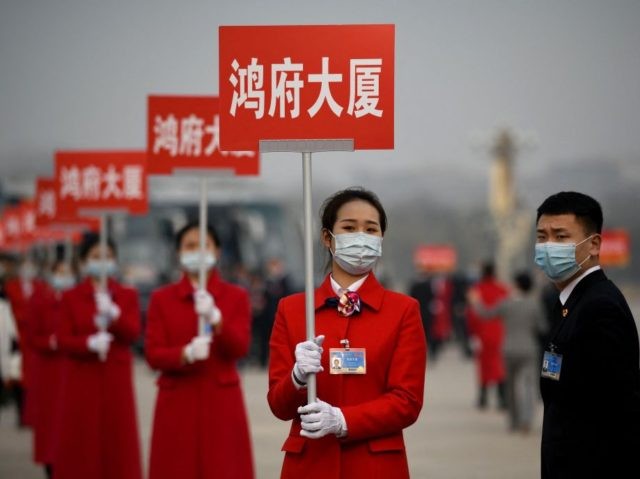AFP — China launched a scathing new attack Wednesday on Britain’s ambassador in Beijing over an article she wrote on media freedom, saying the piece exposed “prejudice” and “double standards.”
The foreign ministry’s remarks came a day after it summoned Caroline Wilson over an article — posted on Chinese social media platform WeChat last week — in which she said foreign media in the country were being misrepresented as “anti-China.”
Wilson raised examples of how critical coverage, including by Chinese media during the start of the coronavirus pandemic, can also be constructive.
Facing an onslaught of official anger, Wilson doubled down on her article, saying in a tweet: “No doubt the outgoing Chinese Ambassador to the UK stands by the 170+ pieces he was free to place in mainstream British media.”
But Beijing reopened the row on Wednesday with foreign ministry spokesman Zhao Lijian saying Wilson’s essay “has confused logic… and makes no mention of UK media’s fake news and untrue reports concerning China”.
Chinese authorities have in recent days taken action against British broadcaster the BBC, with the Chinese regulator pulling BBC World News from air last month.
That followed a BBC report with harrowing accounts of torture and sexual violence against Uighur women in China’s western region of Xinjiang — allegations that Beijing denies.
The ban was widely seen as retaliation for British regulator Ofcom revoking the licence of China’s English-language news network CGTN.
CGTN was also fined on Monday over a complaint brought by British national Peter Humphrey, who says he was forced to make a criminal confession aired by the network.
Wilson’s article aims “to interfere in China’s internal affairs, and reflects her long-held double standards and deep-rooted ideological prejudice,” Zhao added.
Relations between Britain and China are pinched by a range of issues from the treatment of the Uighur minority, to the railroading of Hong Kong’s freedoms and the rights of each other’s broadcasters to air and operate.

COMMENTS
Please let us know if you're having issues with commenting.